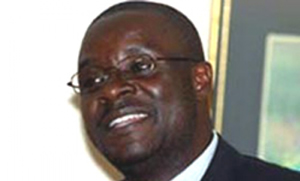Media law to stay, says Charamba

process is complete, Secretary for Media, Information and Publicity Mr George Charamba has said.
He said this while giving oral evidence to the Parliamentary Portfolio Commi- ttee on Media, Information and Communication Technology on the ministry’s half-year budget performance yester- day.
Mr Charamba said while an all stakeholders meeting in Kariba last year had agreed on various mechanisms to deal with AIPPA, the ministry felt it was important to wait for the completion of the constitution-making process.
“We thought we had to wait for the conclusion of the constitution-making process so that we deal with the changes.
“We felt you can’t deal with the lower law when you have not dealt with the over-arching law.
“What we are doing is to simply wait for the constitution-making process and get the parameters and implement the letter and spirit of Kariba,” he said.
ALSO READ…
- Rowdy MDC-T youths threaten ZBC crew
- African media should support the national interest
- Editor, reporter arrested
- Tabloid scandal torches storm for British premier
DISCUSS THIS TOPIC ON FACEBOOK
Mr Charamba said the Kariba meeting had agreed that AIPPA would be split into two bodies of law.
“What we did at Kariba was to split AIPPA into two bodies; that is the concept of the Media Practitioners Bill that regulates conduct of journalists, protection of journalists, registration and accreditation of journalists.
“The other was on the remainder of AIPPA, which deals with accessing of information from public bodies, that is whether it would be a Freedom of Information Bill or Access to Information Bill.”
He said it was important to note that laws of access to information do not provide for unfettered access, but qualify the kind of information the media can access.
Mr Charamba said the law currently provides for the Zimbabwe Media Commission to lead the formation of a Voluntary Media Council through consensus among all media players.
“The constitutional amendments 18 and 19, which re-drew the legal terrain as it relates to the media, foresaw the establishment of a media council led by the ZMC and that it had to be built around consensus, consensus around publishers, consensus around editors, consensus around the journalist fraternity.
“What we have now are voluntary media council aspirants but it’s the task of the ZMC to do that and two weeks ago they were summoned by Jomic to check on progress,” he said.
Mr Charamba was referring to the Voluntary Media Council of Zimbabwe that has been established by some media practitioners.
“The point is there is no media council as yet. Whether the ZMC is going to baptise them (VMCZ), I can’t tell but this is something required by law and all publishers have to contribute to it and submit to it,” he said.
Mr Charamba said the fallout in Britain over the closure of the News of the World tabloid over a phone hacking scandal showed that the questions on media ethics had to be addressed.
“What is at stake is the issue of ethics in the industry, that is, how far can a journalist go without undermining the freedoms of others.”
He called for self-reliance among journalists, tightening of media laws and improving information technologies that protect people.
The ministry, he said, had approached the Ministry of Finance over foreign publications that were coming into Zimbabwe without paying duty.
“It is a huge distortion that those that are published internally are not penalised. We are encouraging de-industrialisation,” Mr Charamba said.
He said the influx of the foreign newspapers created legal challenges as they could not be sued locally.
However, the ministry had since approached Treasury that newsprint and broadcasting equipment be imported duty free, he said.
On the state of the broadcasting industry, Mr Charamba said they had set out to install new transmitters in Beitbridge, Mudzi, St Albert’s, Plumtree and Victoria Falls to improve radio transmission.
Transmitters for Beitbridge and Plumtree have been commissioned while the Victoria Falls one will be commissioned in two to three weeks time.
Mr Charamba said there were still a number of areas that are not yet receiving all the radio stations but commended Transmedia for their efforts to ensure universal access countrywide.








Comments